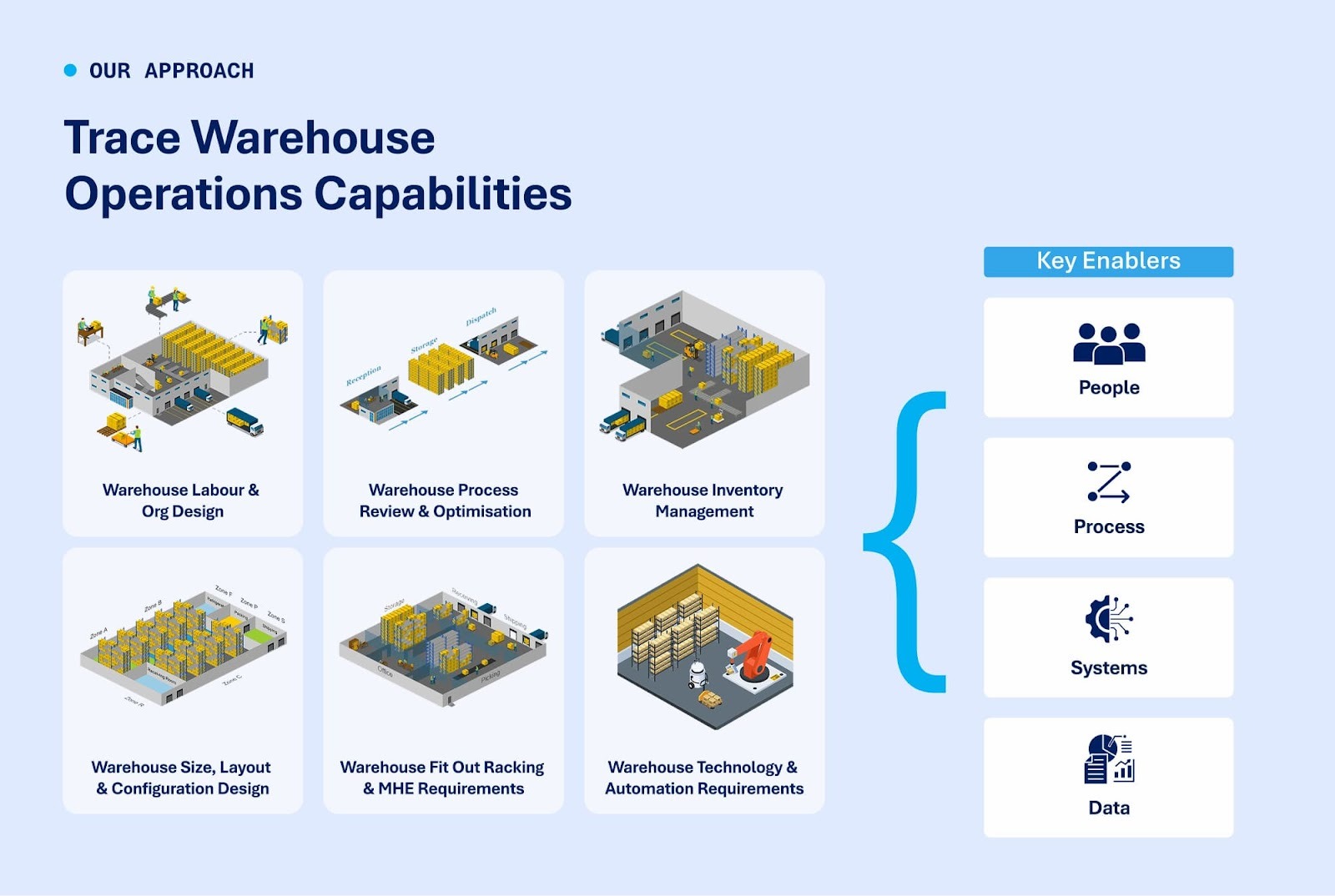DIFOT is one of the most widely used service metrics in supply chains, yet also one of the most misunderstood. This article explores how to measure DIFOT properly, avoid common traps, and use it as a meaningful driver of supply chain performance rather than a superficial scorecard.
Measuring DIFOT Effectively
On-time, in-full delivery performance sits at the heart of supply chain service. For decades, organisations across Australia and New Zealand have relied on DIFOT – Delivered In Full, On Time – as the primary measure of whether supply chains are doing what they are meant to do.
Yet despite its widespread use, DIFOT is frequently misunderstood, inconsistently measured, and poorly applied. In many organisations it has become a headline number that looks reassuring on dashboards but fails to drive better decisions or behaviours. In others, it is weaponised in commercial conversations without a shared understanding of what it actually measures.
Measured poorly, DIFOT obscures problems rather than exposing them. Measured well, it becomes one of the most powerful tools for improving service reliability, prioritising improvement efforts, and holding internal teams and external partners accountable.
This article explores what DIFOT really means, why organisations often struggle to measure it effectively, and how to design DIFOT metrics that genuinely support better supply chain performance.
What DIFOT is – and what it is not
At its core, DIFOT measures whether a customer receives what they ordered, when they expected it.
Simple in theory. Complex in practice.
DIFOT is not just a logistics metric. It reflects the combined performance of demand planning, inventory management, procurement, warehousing, transport, customer service and supplier management. When DIFOT fails, the root cause is rarely confined to one function.
Just as importantly, DIFOT is not a single universal definition. What “on time” and “in full” mean varies significantly by industry, customer type and operating model. Treating DIFOT as a generic, one-size-fits-all KPI is one of the most common sources of confusion.
Why DIFOT matters so much
For customers, DIFOT is often the clearest indicator of service reliability. Consistently delivering in full and on time builds trust, reduces downstream disruption and strengthens commercial relationships.
For organisations, DIFOT has a direct link to:
- Revenue protection and growth
- Customer retention and satisfaction
- Inventory efficiency and working capital
- Transport and expediting costs
- Internal productivity and rework
- Reputation and brand perception
Despite this, many organisations focus on improving DIFOT scores without addressing the underlying drivers, leading to short-term fixes and long-term frustration.
Common problems with how DIFOT is measured
Vague or inconsistent definitions
One of the most frequent issues is a lack of clarity around what constitutes “on time” and “in full”.
Questions that often go unanswered include:
- Is “on time” measured against the customer request date, confirmed date, or promised date?
- Is there a tolerance window, and if so, how wide is it?
- Is “in full” measured by line, order, carton, pallet, unit or value?
- How are partial deliveries treated?
Without clear definitions, DIFOT becomes subjective and open to interpretation.
Measuring DIFOT at the wrong level
Another common issue is measuring DIFOT only at an aggregated level, such as monthly or network-wide performance.
High-level DIFOT figures can mask significant variability:
- Certain customers consistently underperform
- Specific SKUs drive a disproportionate number of failures
- Particular sites or routes create recurring issues
Effective DIFOT measurement requires visibility at the right level of detail to enable action.
Blending root causes into a single number
A single DIFOT percentage tells you very little about why performance is good or bad.
Late delivery due to transport issues, short supply due to inventory constraints, and order errors due to master data problems all show up as the same outcome. Without separating these drivers, improvement efforts lack focus.
Using DIFOT as a lagging indicator only
DIFOT is inherently backward-looking. It tells you what has already happened.
Organisations that rely solely on historical DIFOT reporting often struggle to anticipate problems before they impact customers. Leading indicators are essential to complement DIFOT if service is to be managed proactively.
Defining DIFOT properly for your organisation
There is no single “correct” DIFOT definition. The right definition is the one that aligns with customer expectations and internal decision-making.
Key principles to consider include:
Customer-centric definitions
DIFOT should reflect what matters to the customer, not what is most convenient to measure internally. This may require different definitions for different customer segments or channels.
For example, what constitutes “on time” for a retail distribution centre may be very different from what is acceptable for a direct-to-consumer delivery or a hospital supply chain.
Clear, documented rules
DIFOT definitions should be explicit, documented and consistently applied. This includes:
- Time tolerances
- Treatment of partial shipments
- Handling of customer-driven changes
- Cut-off times and lead time assumptions
Ambiguity erodes trust in the metric and undermines accountability.
Alignment across functions
Sales, customer service, supply chain and finance should all be working from the same DIFOT definition. Misalignment leads to unproductive debate and finger-pointing rather than improvement.
Measuring DIFOT at the right level of detail
Effective DIFOT measurement balances simplicity with insight.
Order, line and unit-level views
Different views answer different questions:
- Order-level DIFOT highlights customer experience
- Line-level DIFOT exposes SKU and availability issues
- Unit or quantity-based DIFOT shows the scale of impact
Relying on only one view can distort priorities.
Customer and channel segmentation
Not all DIFOT failures are equal. Losing service with a strategic customer or critical channel has very different implications to missing a low-volume order.
Segmented DIFOT reporting helps organisations focus effort where it matters most.
Site, route and supplier visibility
Breaking DIFOT down by site, route, carrier or supplier enables targeted operational improvement rather than blanket initiatives.
Understanding why DIFOT fails – root cause analysis
Measuring DIFOT without understanding why it fails limits its usefulness.
High-performing organisations classify DIFOT failures into meaningful root cause categories, such as:
- Forecast error or demand volatility
- Inventory availability or policy issues
- Supplier performance
- Warehouse picking or packing errors
- Transport delays or capacity constraints
- Order capture or master data errors
Over time, this builds a fact base that guides improvement investment.
Complementing DIFOT with leading indicators
To manage service proactively, DIFOT should be complemented by leading indicators that signal risk before delivery occurs.
Examples include:
- Inventory coverage versus target
- Backorder levels and ageing
- Supplier OTIF performance
- Warehouse backlog or throughput constraints
- Transport capacity utilisation
These metrics allow teams to intervene earlier and protect DIFOT outcomes.
DIFOT and behaviour – getting the incentives right
One of the biggest risks with DIFOT is how it influences behaviour.
Poorly designed DIFOT metrics can drive unintended consequences, such as:
- Overbuilding inventory to protect service
- Expensive expediting or freight upgrades
- Prioritising easy wins over systemic improvement
- Disputes over attribution rather than problem-solving
To avoid this, DIFOT should be part of a balanced performance framework rather than a standalone target.
Internal accountability versus external accountability
Holding internal teams accountable
Internally, DIFOT should encourage cross-functional collaboration. Failures should prompt investigation and learning, not blame.
Clear ownership of root causes – not just outcomes – helps teams focus on what they can control.
Holding suppliers and partners accountable
Externally, DIFOT and OTIF metrics are often embedded in supplier and carrier performance management.
To be effective, these metrics must be:
- Fair and transparent
- Based on agreed definitions
- Supported by reliable data
Without this foundation, DIFOT becomes a source of dispute rather than improvement.
The role of systems and data quality
Accurate DIFOT measurement relies on high-quality data across order management, inventory, warehousing and transport systems.
Common challenges include:
- Inconsistent timestamps
- Manual overrides
- Poor master data
- Lack of integration between systems
Before refining DIFOT definitions, organisations often need to address underlying data and process issues.
Using DIFOT as a decision-making tool
When measured effectively, DIFOT becomes a powerful input into strategic and operational decisions, including:
- Inventory policy and safety stock settings
- Network and capacity planning
- Supplier selection and development
- Transport strategy and carrier mix
- Customer service models and segmentation
This is where DIFOT moves from being a report to being a management tool.
How Trace Consultants can help
Trace Consultants works with Australian and New Zealand organisations to design, implement and embed effective DIFOT measurement frameworks that drive real improvement rather than superficial reporting.
Our support typically includes:
DIFOT definition and framework design
Helping organisations define DIFOT in a way that aligns with customer expectations, operating models and decision-making needs.
Data and reporting review
Assessing data flows, system limitations and reporting structures to ensure DIFOT metrics are accurate, reliable and actionable.
Root cause and performance analysis
Supporting structured analysis of DIFOT drivers to prioritise improvement initiatives based on evidence rather than intuition.
KPI and governance design
Embedding DIFOT into broader performance frameworks with clear ownership, escalation and review processes.
Independent, practical advice
Trace is not aligned to technology vendors or logistics providers. Our advice is independent, solution-agnostic and focused on outcomes.
When should organisations revisit how they measure DIFOT?
Common triggers include:
- DIFOT scores that look “good” but customer complaints persist
- Ongoing disputes about what DIFOT actually means
- Repeated service failures with the same customers or products
- Limited insight into why performance fluctuates
- Increased complexity from growth, new channels or new partners
These are often signs that DIFOT is being measured, but not managed.
Final thoughts
DIFOT is one of the most powerful service metrics in the supply chain – but only when it is defined, measured and used properly.
Effective DIFOT measurement requires clarity, discipline and a willingness to look beyond the headline number. It demands an understanding of customer expectations, operational realities and behavioural impacts.
For Australian and New Zealand organisations navigating cost pressure, service expectations and increasing complexity, getting DIFOT right is not about chasing a percentage point. It is about building a supply chain that is reliable, transparent and accountable.













